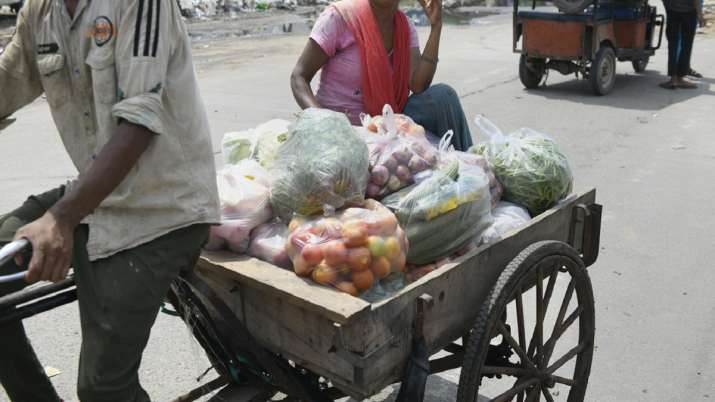
New Delhi: A vendor uses plastic bags for vegetables despite the government’s ban on the manufacture, sale and use of single-use plastics (SUPs), in New Delhi, Saturday, July 2, 2022.
Highlight
- The Delhi government will request the Center to reduce the GST on raw materials.
- Environment Minister chaired a round table meeting with stakeholders.
- He also said that people think that ban on SUP items means ban on plastic carry bags.
single use plastic ban Environment Minister Gopal Rai on Sunday said that in light of the ban on single-use plastic items, the Delhi government will request the Center to reduce the GST on raw materials for production of substitutes. The minister chaired a round table meeting with stakeholders to discuss SUP options and said that there is a lot of confusion among the public and even some government agencies regarding the items covered under the ban.
“We will conduct a training session for our enforcement teams so that there is no confusion while implementing the ban,” he added. Rai said the government would also issue a helpline number to register complaints if action is taken against the use of banned products.
After some stakeholders drew the minister’s attention to higher GST rates on raw materials for green alternatives, Rai said the city government would write to the Center on the issue.
He said the Delhi government would request the Center to reduce the GST rates on raw materials for manufacturing alternatives to single-use plastics. Rai also said that people think that ban on SUP items means ban on plastic carry bags and hence there is an urgent need to create awareness among the public.
The Delhi government is also working on a website which will have all the information related to banned SUP items, their substitutes and sources of raw material for manufacturing the substitutes.
The action will include fine up to one lakh rupees or imprisonment up to five years or both under the Environment Protection Act, 1986, he had said.
(with PTI inputs)